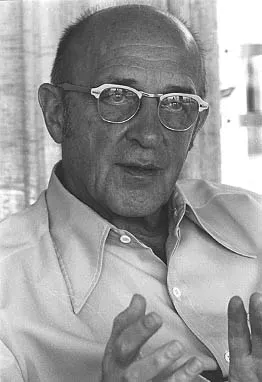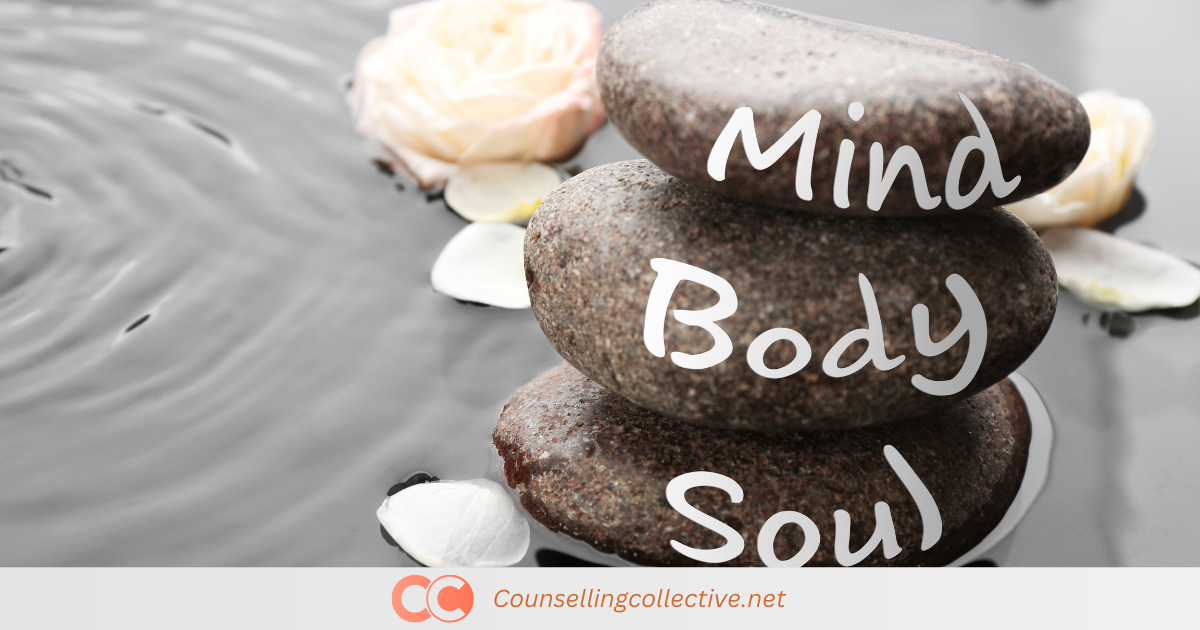Contents
Introduction

Holistic Therapy: Techniques, Applications, and Effectiveness
Holistic Therapy is a comprehensive approach to psychotherapy that emphasizes treating the whole person—mind, body, and spirit—rather than focusing solely on specific symptoms or issues. This integrative therapy is designed to promote overall well-being and healing by addressing various dimensions of a person’s life. Unlike traditional therapies that may focus on isolated aspects of mental health, Holistic Therapy takes into account the interconnected nature of physical, emotional, mental, and spiritual health.
This article explores Holistic Therapy in depth, including its foundational principles, key techniques, applications, and effectiveness. It also examines the therapy’s limitations and evaluates its impact on mental health and personal development.
What is Holistic Therapy?
Holistic therapy is a therapeutic approach designed to address a range of medical and emotional disorders by incorporating methods beyond conventional treatments. It adopts a whole-person perspective, aiming to enhance and treat every aspect of an individual’s life rather than focusing solely on isolated symptoms.
In the context of drug and alcohol rehabilitation, practitioners often employ an integrative approach. This combines traditional addiction treatment methods, such as psychotherapy and medication, with alternative therapies like acupuncture and yoga. By blending these modalities, holistic therapy seeks to support comprehensive recovery and overall well-being.
Why is Holistic Therapy Important?
Holistic Therapy is significant because it provides a comprehensive and integrative approach to healing that acknowledges the interconnected nature of human experience. Unlike traditional therapies that may focus on isolated symptoms or specific aspects of an individual’s condition, Holistic Therapy takes into account the whole person—mind, body, and spirit. This approach ensures that all dimensions of a person’s life are considered and addressed, leading to more effective and sustainable therapeutic outcomes.
By focusing on balance and integration, Holistic Therapy aims to restore harmony within the individual and between the individual and their environment. This method is particularly valuable for addressing a broad spectrum of issues, including stress, anxiety, depression, and chronic health conditions
Types of Holistic Therapy
- Mind-Body Therapy: Focuses on the connection between mental and physical health, integrating practices that address both aspects simultaneously. For example, yoga combines physical exercise with mindfulness, which can enhance both physical health and emotional well-being.
- Integrative Medicine: Combines conventional medical treatments with alternative therapies to address the whole person. This approach promotes a comprehensive treatment plan that includes both standard and complementary practices.
- Energy Healing: Utilizes techniques aimed at balancing the body’s energy fields to promote physical, emotional, and spiritual well-being. Methods such as Reiki or therapeutic touch are used to clear blockages and restore balance. For example, Reiki practitioners use their hands to channel energy and help release stress and promote healing.
- Spiritual Counseling: Focuses on addressing spiritual and existential concerns as part of the therapeutic process. This approach integrates spiritual practices and beliefs into therapy to support overall well-being.
- Reiki: Reiki is an energy healing practice originating from Japan, where practitioners use their hands to channel universal energy into the recipient’s body. The goal is to balance the energy fields, promote relaxation, and support physical and emotional healing. Reiki sessions can help reduce stress, alleviate pain, and enhance overall well-being by addressing energetic imbalances.
- Tai Chi: Tai Chi is a Chinese martial art known for its slow, flowing movements and deep breathing techniques. It combines physical exercise with meditation, aiming to improve balance, flexibility, and overall health. Practicing Tai Chi regularly can help reduce stress, enhance mental clarity, and support physical coordination and stability.
- Yoga: Yoga is an ancient practice from India that incorporates physical postures, breath control, and meditation to promote physical and mental well-being. It aims to improve flexibility, strength, and balance while also fostering a sense of inner peace and mindfulness. Regular yoga practice can help manage stress, enhance emotional resilience, and support overall health.
Techniques Used In Holistic Therapy
- Mindfulness Meditation: Focuses on cultivating present-moment awareness by engaging in deep breathing exercises, body scans, and guided visualizations. This practice helps individuals manage their thoughts and emotions, reduces chronic stress, enhances emotional regulation, and fosters a deeper sense of self-awareness and inner peace.
- Breathwork: Involves various controlled breathing techniques, such as diaphragmatic and alternate nostril breathing, to release emotional tension stored in the body. Breathwork sessions can help increase relaxation, support trauma release, improve mental clarity, and promote both physical and emotional healing by connecting with deeper emotions.
- Emotional Freedom Techniques (EFT): A form of psychological acupressure, EFT involves tapping on specific meridian points on the body while focusing on negative emotions or stressors. Combining cognitive restructuring with physical touch, EFT can help reduce anxiety, alleviate stress, manage pain, and address emotional distress, offering a holistic approach to mental well-being.
- Physical Exercise: Engaging in regular physical activities such as walking, jogging, or yoga to boost mood and overall well-being. Exercise helps release endorphins and other chemicals that improve mood, energy levels, and reduce symptoms of depression.
- Cognitive Techniques: Utilizing cognitive strategies like cognitive restructuring to challenge and change negative thought patterns. This involves identifying irrational or distorted thinking and replacing it with more balanced and positive thoughts.
- Spiritual Practices: Exploring spiritual activities like meditation, prayer, or connecting with nature to find meaning and purpose in life. These practices can provide a sense of hope, grounding, and connection to something larger than oneself.
Understanding How Holistic Therapy Works
Holistic Therapy works by integrating a range of approaches to address the full spectrum of an individual’s well-being. A holistic therapist might blend cognitive-behavioral therapy with mindfulness exercises to manage stress, incorporate physical activities to improve overall fitness, and provide nutritional advice to support energy levels and mood stability. By simultaneously targeting various aspects of a person’s life
Moving forward, we will discuss the basic principles that form the foundation of Holistic Therapy, outline its key concepts, and evaluate its success in addressing various psychological and relationship-based challenges.
Simple Overview
Holistic Therapy focuses on making broad lifestyle changes to improve overall health and well-being. This involves enhancing diet, engaging in consistent physical exercise, establishing effective sleep routines, and employing stress management techniques. By targeting these essential areas, clients can achieve a more balanced and harmonious state of both physical and emotional health, which supports their overall resilience and quality of life.
Real-Life Example: For someone feeling burned out from work, the therapist might propose a multifaceted approach to address the various dimensions contributing to their stress. This might include practical time management strategies to reduce workload and increase efficiency, exercise routines designed to release endorphins and improve mood, mindfulness practices such as meditation or deep breathing exercises to alleviate stress, and personalized nutritional advice to maintain energy levels and support overall health.
Critical Concepts
- Systematic Integration: Holistic Therapy uses a well-structured, integrative approach that blends multiple therapeutic techniques into a cohesive treatment plan. By ensuring that all relevant aspects of a client’s life—physical, emotional, mental, and spiritual—are addressed, this methodical evaluation promotes comprehensive healing. It seeks to effectively support a balanced state of being, recognizing the complex, interconnected nature of human experiences.
- Balance and Harmony: Central to Holistic Therapy is the pursuit of equilibrium among all dimensions of a person’s existence—body, mind, emotions, and spirit. This therapeutic perspective emphasizes the interdependence of these areas, advocating for practices that support overall health and well-being. By fostering balance and harmony, it enhances resilience and encourages growth, contributing to a more integrated and fulfilled life.
- Personalization and Adaptability: Holistic Therapy values flexibility, allowing interventions to be personalized according to the unique needs and circumstances of each client. Therapists carefully select and adapt techniques to align with individual goals, preferences, and life contexts. This tailored approach ensures that the therapy is not only effective but also relevant, providing a customized path to healing, self-discovery, and sustained personal growth.
Comparison Between Holistic Therapy & Humanistic Therapy
| Aspect | Holistic Therapy | Humanistic Therapy |
| Core Focus | Overall well-being through integration of mind, body, spirit, and emotions. | Personal growth, self-actualization, and understanding of one’s unique perspective. |
| Philosophical Basis | Integrative, drawing from Eastern philosophies and energy healing concepts. | Rooted in existential and phenomenological principles, focusing on self-awareness and personal freedom. |
| Therapeutic Approach | Combines all techniques (meditation, yoga, nutrition, etc.) to address all life dimensions. | Primarily uses talk therapies like Client-Centered, Gestalt, and Existential Therapy. |
| Personalization | Highly adaptable to the individual’s holistic needs, preferences, and life context. | Customizes based on the client’s subjective experience, emphasizing empathy and unconditional support. |
| Therapeutic Goals | Achieving balance and harmony across physical, emotional, mental, and spiritual aspects. | Empowering clients toward self-awareness, self-acceptance, and realizing their potential. |
| Strengths | Addresses multiple dimensions, providing comprehensive and versatile treatment. | Promotes deep self-awareness, authenticity, and emotional freedom through a non-directive approach. |
| Outcome | Improvements in physical health, emotional stability, mental clarity, and spiritual alignment. | Increased self-awareness, personal growth, emotional freedom, and fulfillment. |
Notable Figures in Holistic Therapy
Carl Rogers: A seminal figure in Humanistic Therapy, Rogers laid the groundwork for many holistic approaches. His client-centered therapy emphasizes empathy, unconditional positive regard, and self-actualization, aligning closely with holistic principles that advocate for personal growth and self-discovery as central to healing.
Deepak Chopra: A leading advocate for integrating Western medicine with Eastern philosophies, Chopra has developed numerous holistic practices. His approach combines meditation, Ayurveda, and mind-body medicine, aiming to harmonize physical health with spiritual well-being and promote overall wellness.
Jon Kabat-Zinn: Renowned for founding Mindfulness-Based Stress Reduction (MBSR), Kabat-Zinn’s work has had a profound impact on holistic therapy. By incorporating mindfulness and meditation techniques, he has enhanced therapeutic practices and helped individuals manage stress and improve mental health through a holistic lens.
Carl Rogers- Image Source: harvardtherapy.co.uk

Theories Influenced by Holistic Therapy
- Eclectic Therapy: This theory incorporates elements from various therapeutic modalities to address the holistic needs of clients. Drawing from holistic therapy principles, eclectic therapy utilizes a range of techniques to provide a comprehensive treatment plan that considers physical, emotional, and spiritual aspects.
- Narrative Therapy: Has incorporated holistic elements by considering the emotional, psychological, and social contexts of a client’s story. This integration supports a more comprehensive understanding of the client’s experience.
- Mindfulness-Based Cognitive Therapy (MBCT): Combines cognitive therapy with mindfulness practices to address depression and prevent relapse, integrating the holistic principles of awareness and emotional balance.
- Gratitude Therapy: Uses practices of gratitude to enhance mental and emotional health, reflecting holistic principles of positive emotional regulation and well-being by fostering a mindset of appreciation.
Applications of Holistic Therapy in Treating Mental Health Disorders

Depression
Combines emotional processing, cognitive techniques, physical exercise, and spiritual practices to address symptoms of depression. This holistic approach aims to improve mood, manage negative thoughts, and foster overall well-being by integrating various methods to address different aspects of the condition.
Example: A client may engage in regular physical activity to boost mood, use cognitive techniques to challenge negative thought patterns, participate in emotional processing exercises to work through underlying issues, and explore spiritual practices to find meaning and purpose in life.
Image Source: practo.com

Anxiety Disorders
Integrates relaxation techniques, cognitive-behavioral strategies, and mindfulness practices to manage anxiety symptoms. This approach helps reduce physical tension, modify irrational thoughts, and enhance emotional resilience by combining different strategies to address both mental and physical aspects of anxiety.
Example: A client with generalized anxiety disorder might practice mindfulness meditation to reduce stress, use cognitive techniques to challenge and reframe anxious thoughts, and engage in physical activities to alleviate tension and improve overall emotional balance.
Image Source: cura4u.com

Relationship Issues
Utilizes interpersonal techniques, emotional processing, and spiritual counseling to improve relationship dynamics. This comprehensive approach addresses communication issues, facilitates emotional expression, and explores shared values to strengthen relational bonds and resolve conflicts.
Example: A couple might work on enhancing their communication skills through targeted interpersonal techniques, engage in emotional processing exercises to address and resolve unresolved issues, and explore spiritual counseling to align their shared values and goals for a more cohesive relationship.
Image Source: regain.us
Common Myths About Holistic Therapy
| Myth | Reality |
| Holistic Therapy is Unscientific | Holistic Therapy integrates scientific principles with traditional practices, using evidence-based techniques alongside alternative methods to address various aspects of health. |
| Holistic Therapy is Only About Alternative Practices | While Holistic Therapy includes alternative practices, it also incorporates evidence-based techniques from conventional medicine and psychotherapy, aiming for a balanced and comprehensive approach. |
| Holistic Therapy is Too Vague and Unstructured | Holistic Therapy follows structured methodologies, including thorough assessments and personalized treatment plans that address physical, emotional, mental, and spiritual aspects systematically. |
| Holistic Therapy is Ineffective Compared to Traditional Therapies | Holistic Therapy is effective for many individuals as it provides a comprehensive approach that integrates multiple modalities, addressing diverse needs and often resulting in improved overall well-being. |
Criticisms of Holistic Therapy
- Complexity and Overwhelm: The integrative nature of Holistic Therapy can be overwhelming for both therapists and clients due to its broad range of techniques and dimensions. This approach often involves the coordination of diverse methods, requiring a deep understanding and skillful integration of various therapeutic practices.
- Dependence on Therapist Skill: The success of Holistic Therapy is heavily reliant on the therapist’s expertise and experience in integrating multiple techniques. A high level of skill is necessary to effectively combine methods from different modalities, such as physical, emotional, mental, and spiritual practices. Inadequate proficiency can diminish the effectiveness of the therapy, making the quality of the therapist’s training and experience a crucial factor in achieving positive outcomes.
- Potential for Lack of Focus: The extensive scope of Holistic Therapy may present challenges in maintaining a focused approach to specific issues. With its emphasis on addressing various dimensions of a client’s life, there is a risk that therapy could become diffuse or scattered.
Conclusion
Holistic Therapy represents a comprehensive and integrative approach to psychotherapy that encompasses the physical, emotional, mental, and spiritual dimensions of well-being. This therapeutic model is grounded in the belief that true healing requires attention to all aspects of a person’s life, recognizing that these dimensions are deeply interconnected. By employing a systematic and personalized framework, Holistic Therapy aims to promote overall health and healing in a balanced and sustainable manner. The therapy’s strength lies in its ability to tailor interventions to the unique needs of each individual, addressing a broad spectrum of psychological and relational issues.
References
- Chopra, D. (1993). Ageless body, timeless mind: The quantum alternative to growing old. New York: Harmony Books.
- Kabat-Zinn, J. (1990). Full catastrophe living: Using the wisdom of your body and mind to face stress, pain, and illness. New York: Bantam Books.
- Rogers, C. R. (1961). On becoming a person: A therapist’s view of psychotherapy. Boston: Houghton Mifflin.
- Gergen, K. J., McNamee, S., & Barrett, F. J. (2001). Toward transformative dialogue. International Journal of Public Administration, 24(7-8), 679-707. https://doi.org/10.1080/019006901750301162
- Jordan, M., & Hearn, T. (2018). Integrative body-mind training: Theoretical and practical aspects. Journal of Mind-Body Medicine, 5(2), 34-45. https://doi.org/10.1007/s12160-018-0001-x
- Neimeyer, R. A., & Raskin, J. D. (2000). Constructions of the self: Theory and practice. New York: Guilford Press.
- Goodman, P. (1971). The Community of Scholars. New York: Random House.
- Minuchin, S., & Fishman, H. C. (1981). Family Therapy Techniques. Cambridge, MA: Harvard University Press.
- Gergen, K. J. (2009). Relational being: Beyond self and community. Oxford University Press.
- Greenberg, L. S., & Watson, J. C. (2006). Emotion-focused therapy for depression. Washington, DC: American Psychological Association.
Explore more Theories & Therapies








